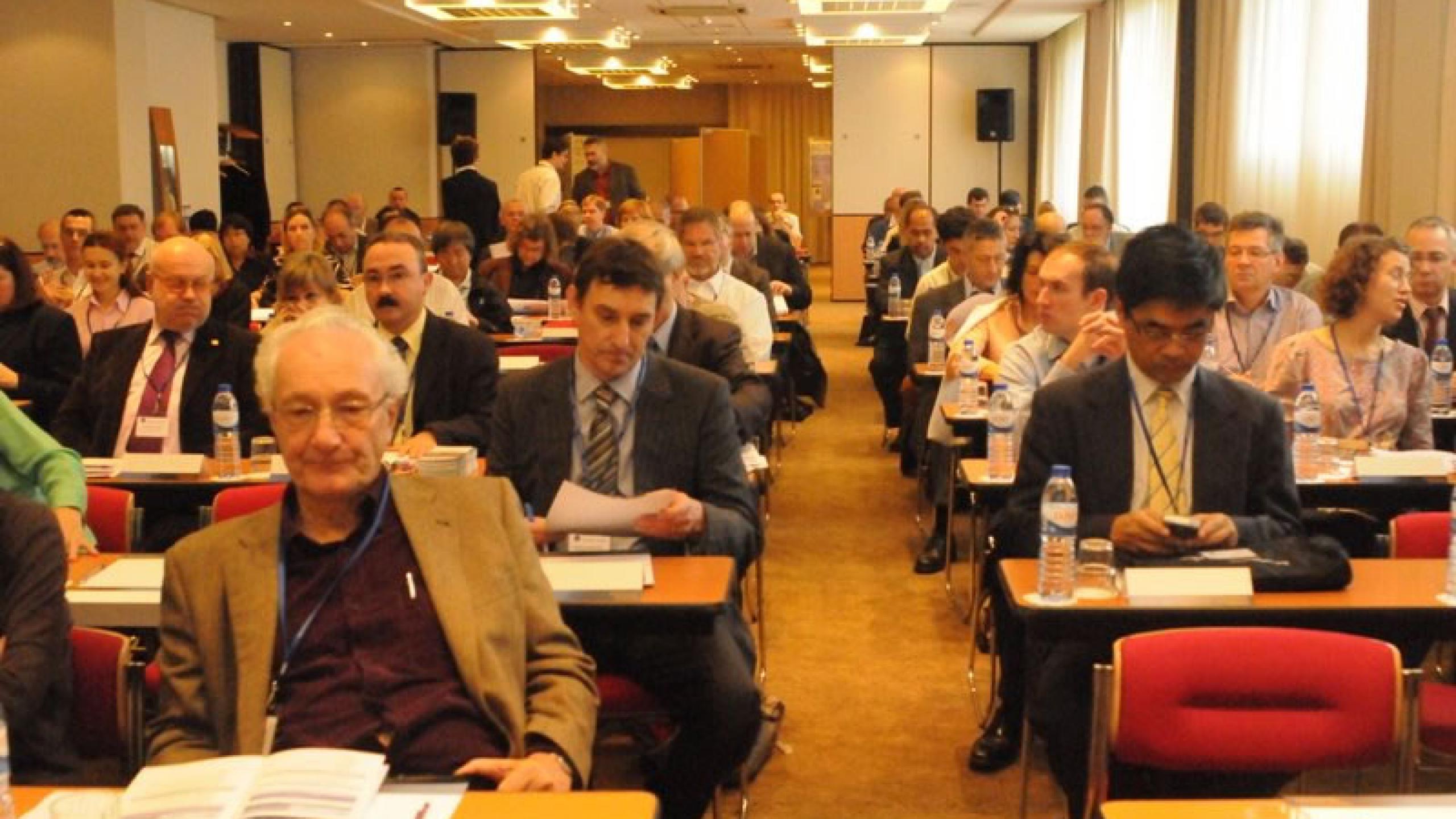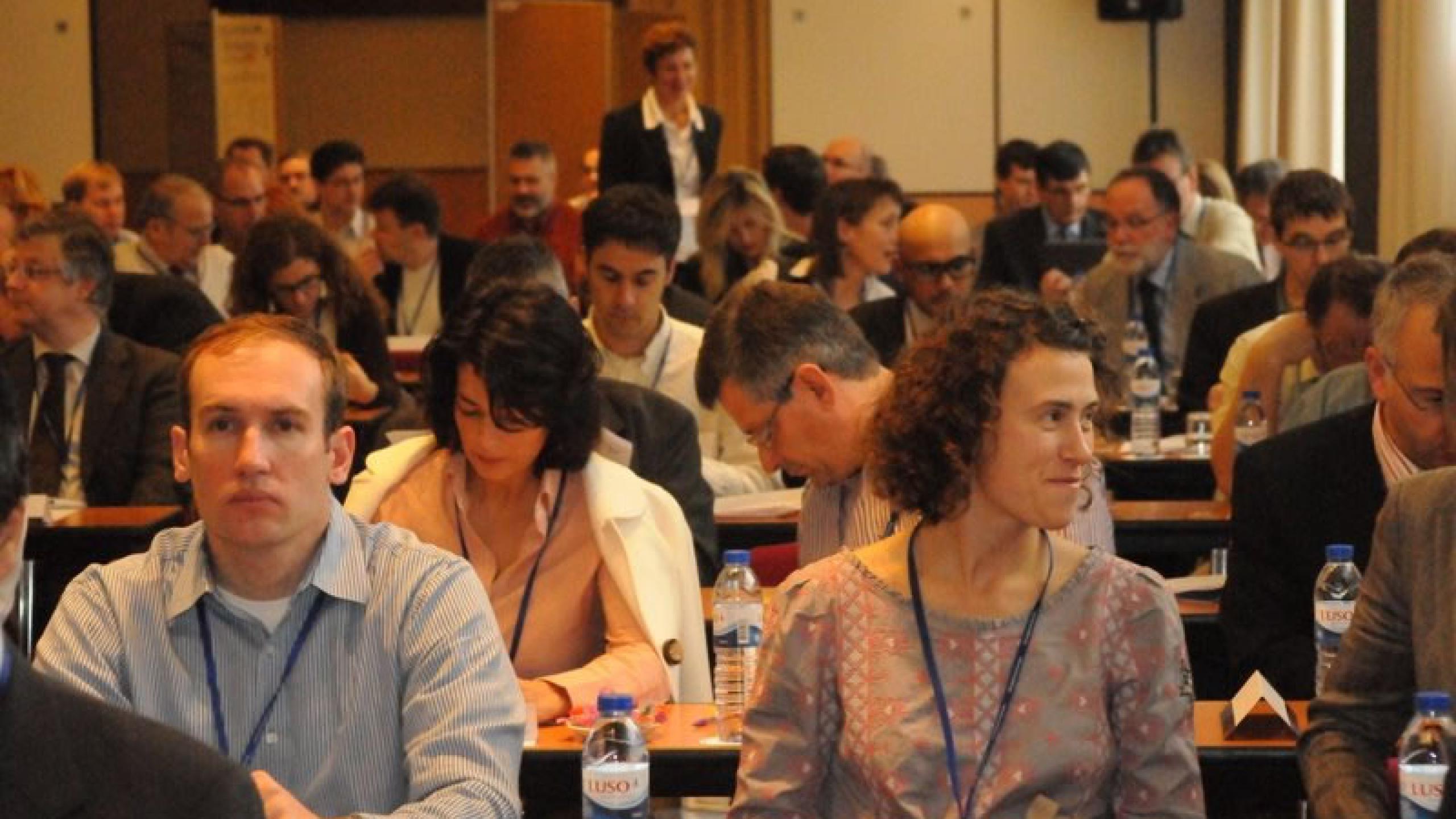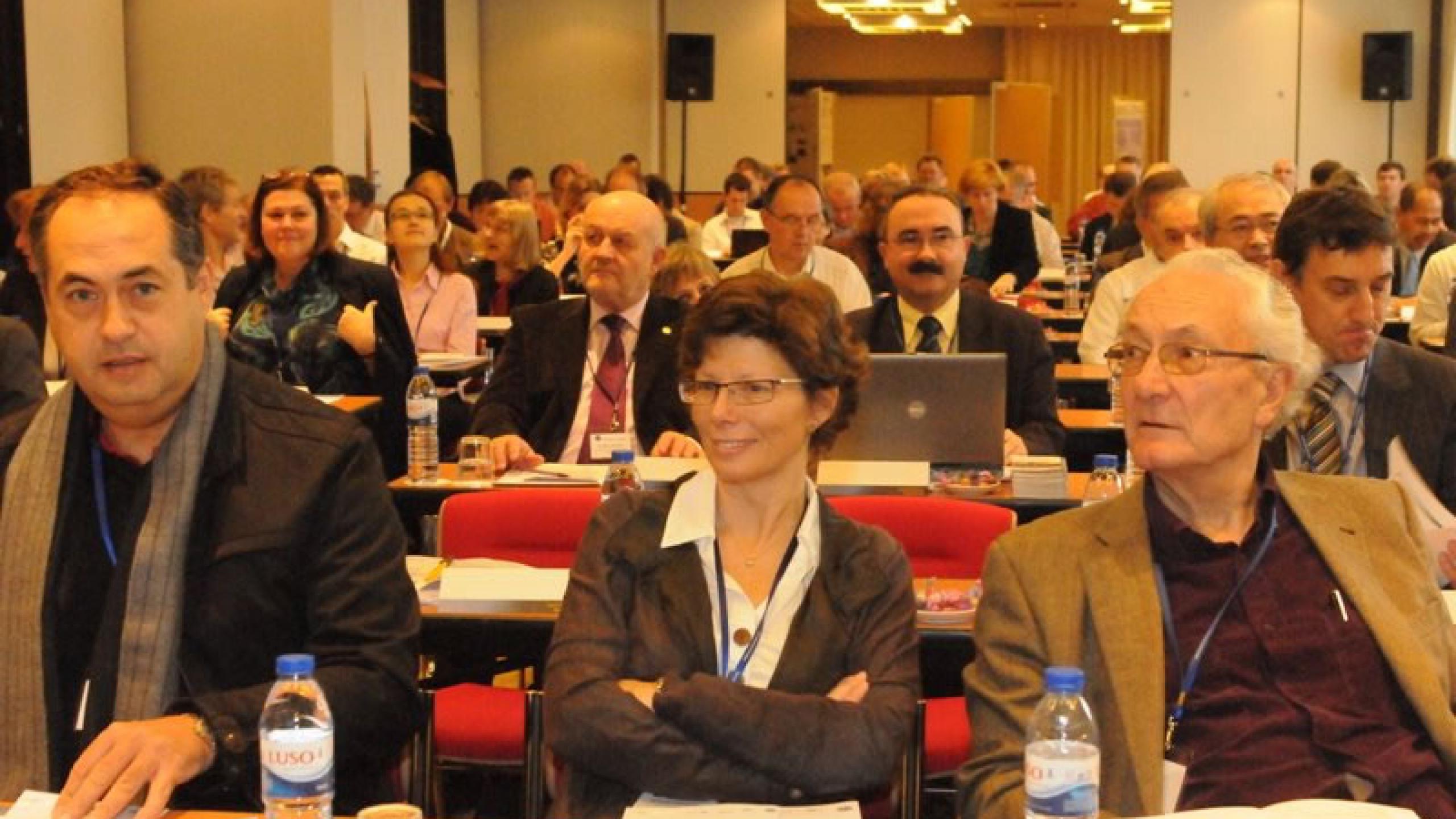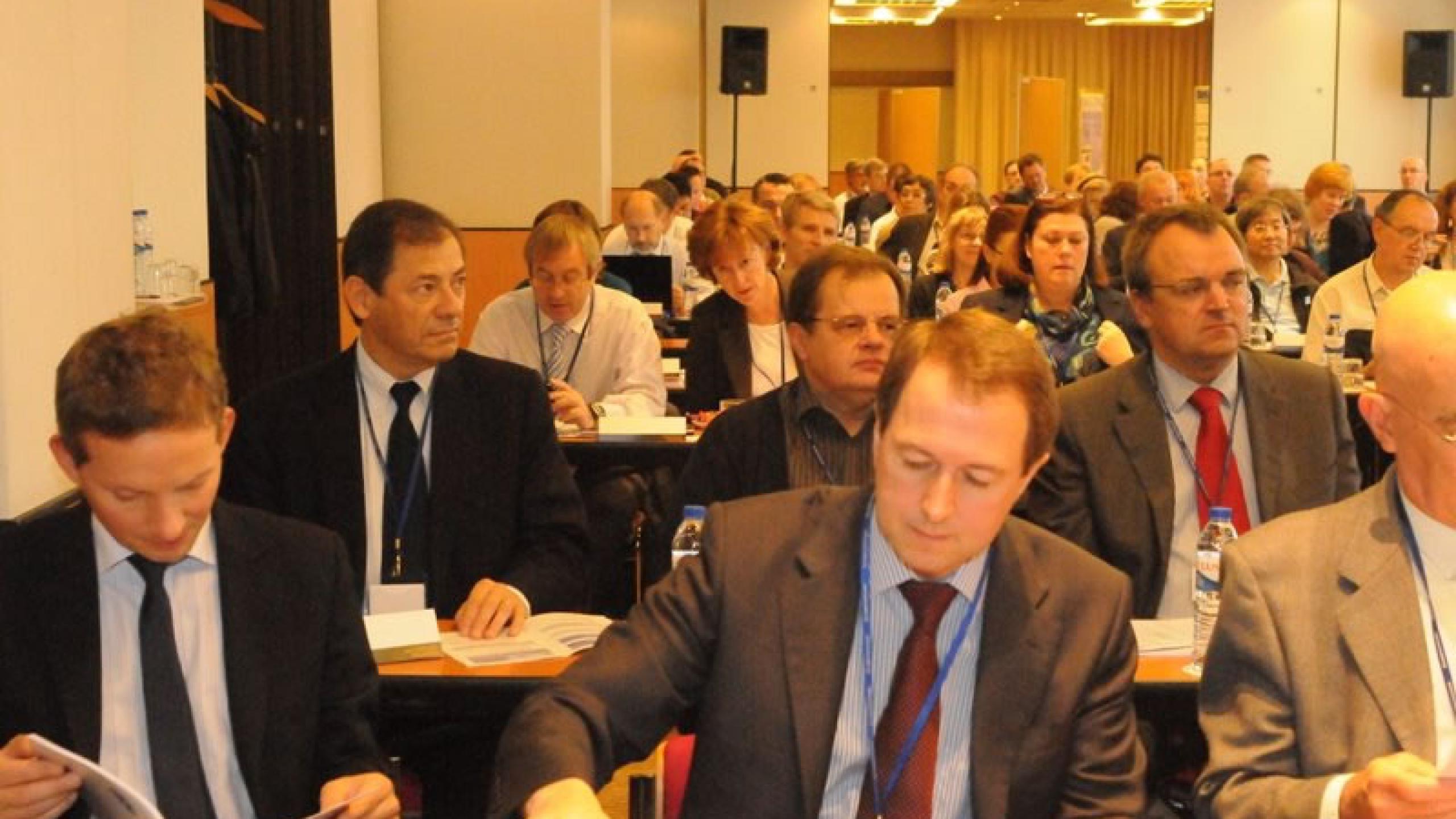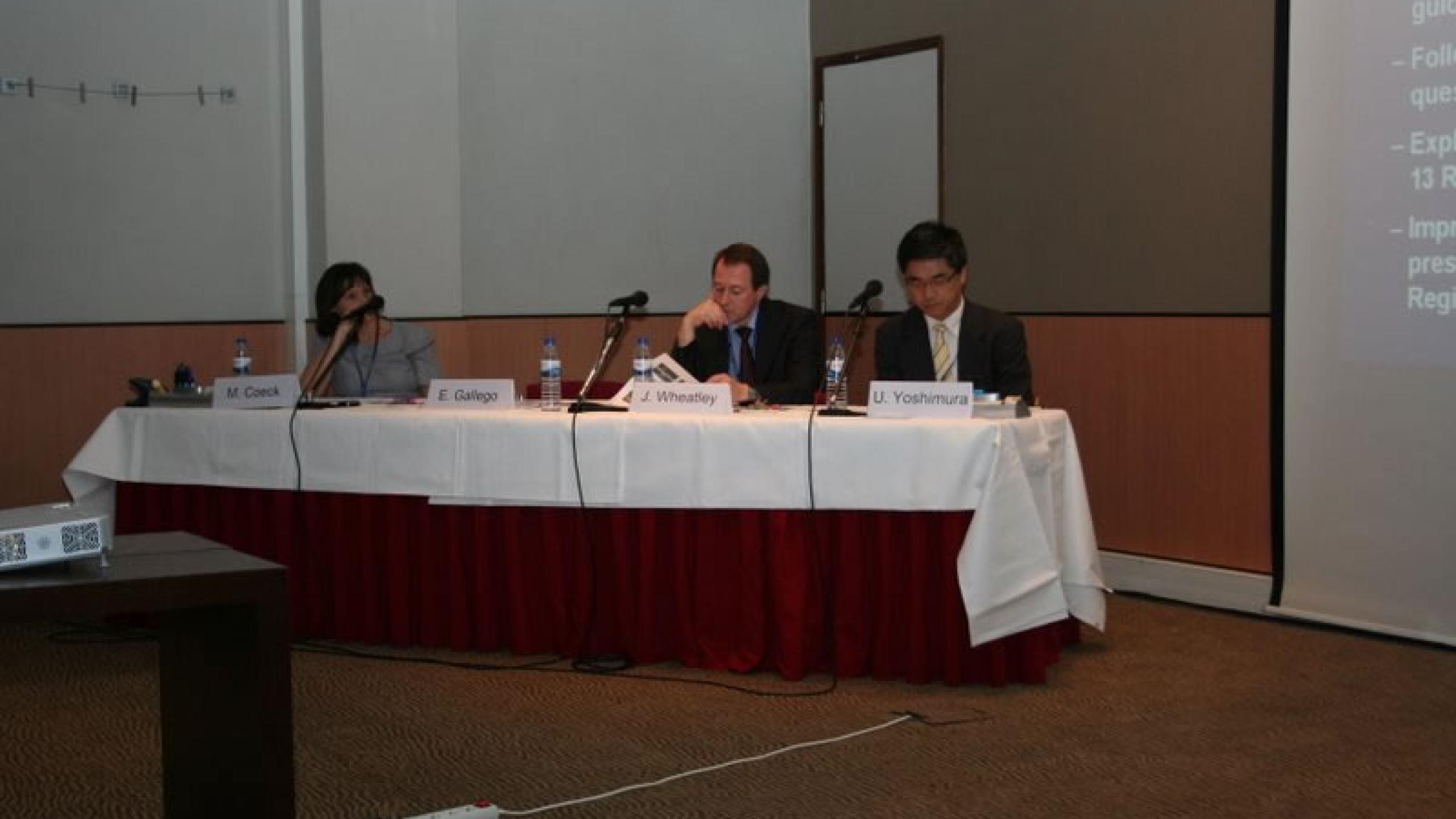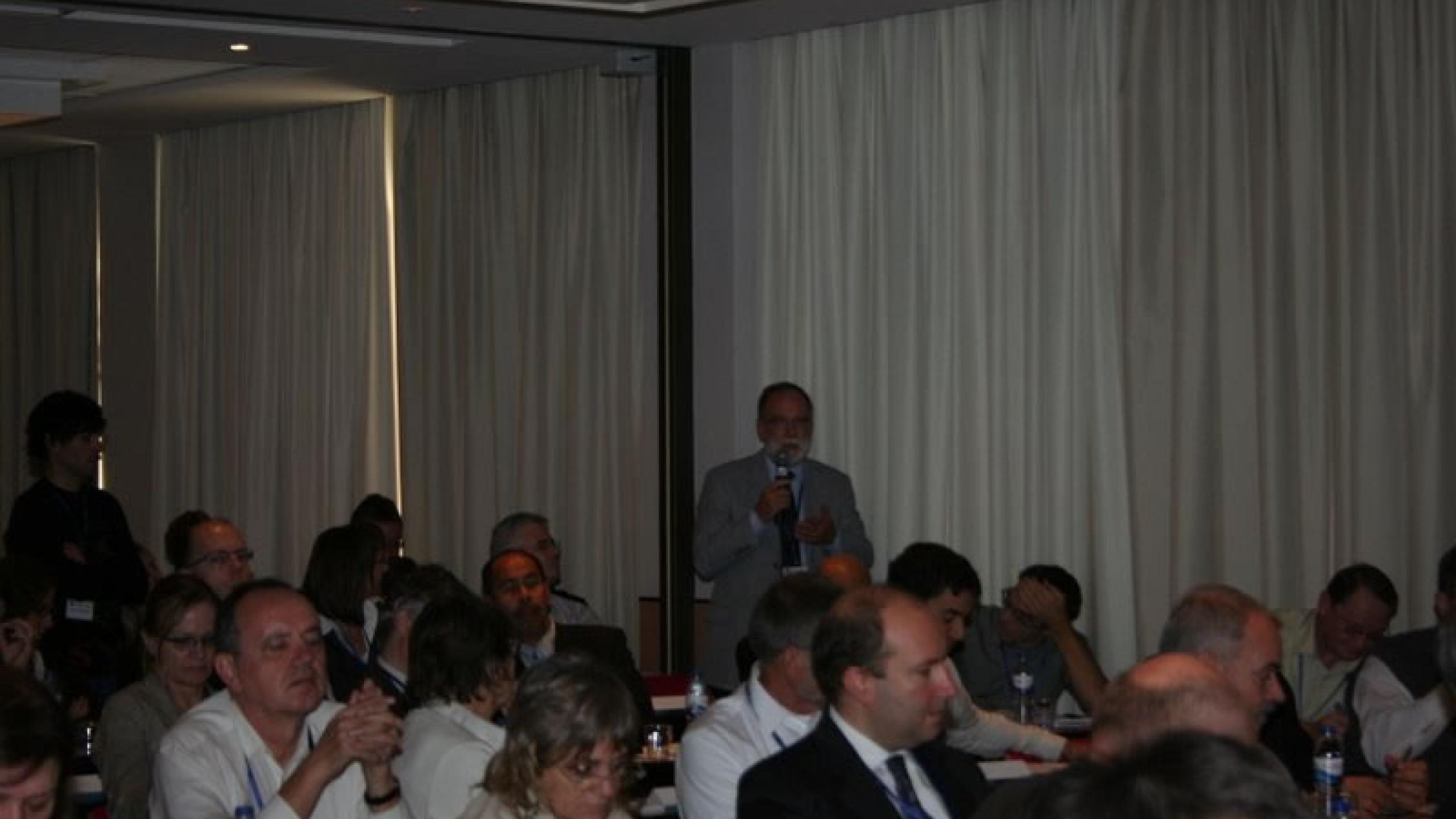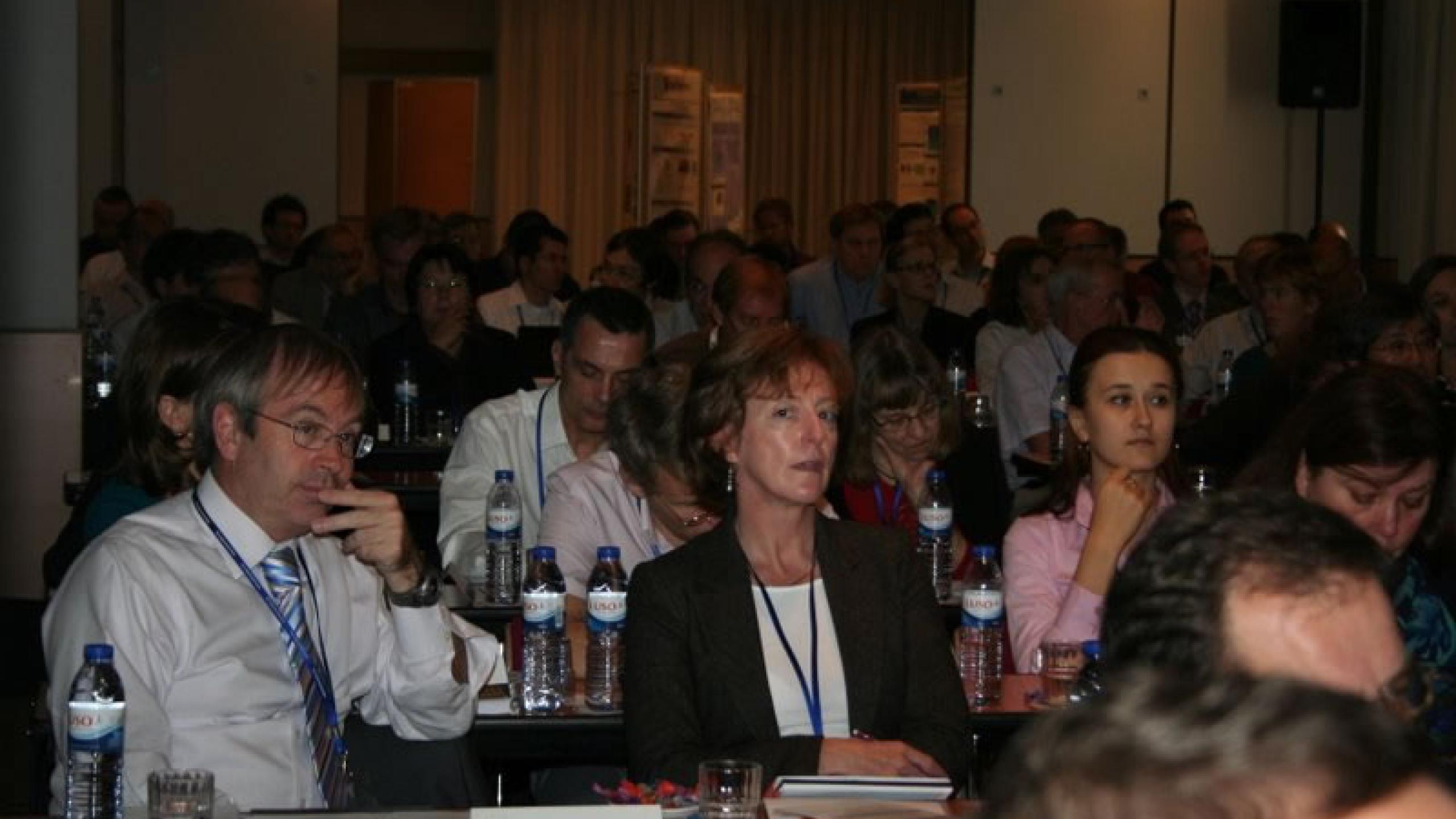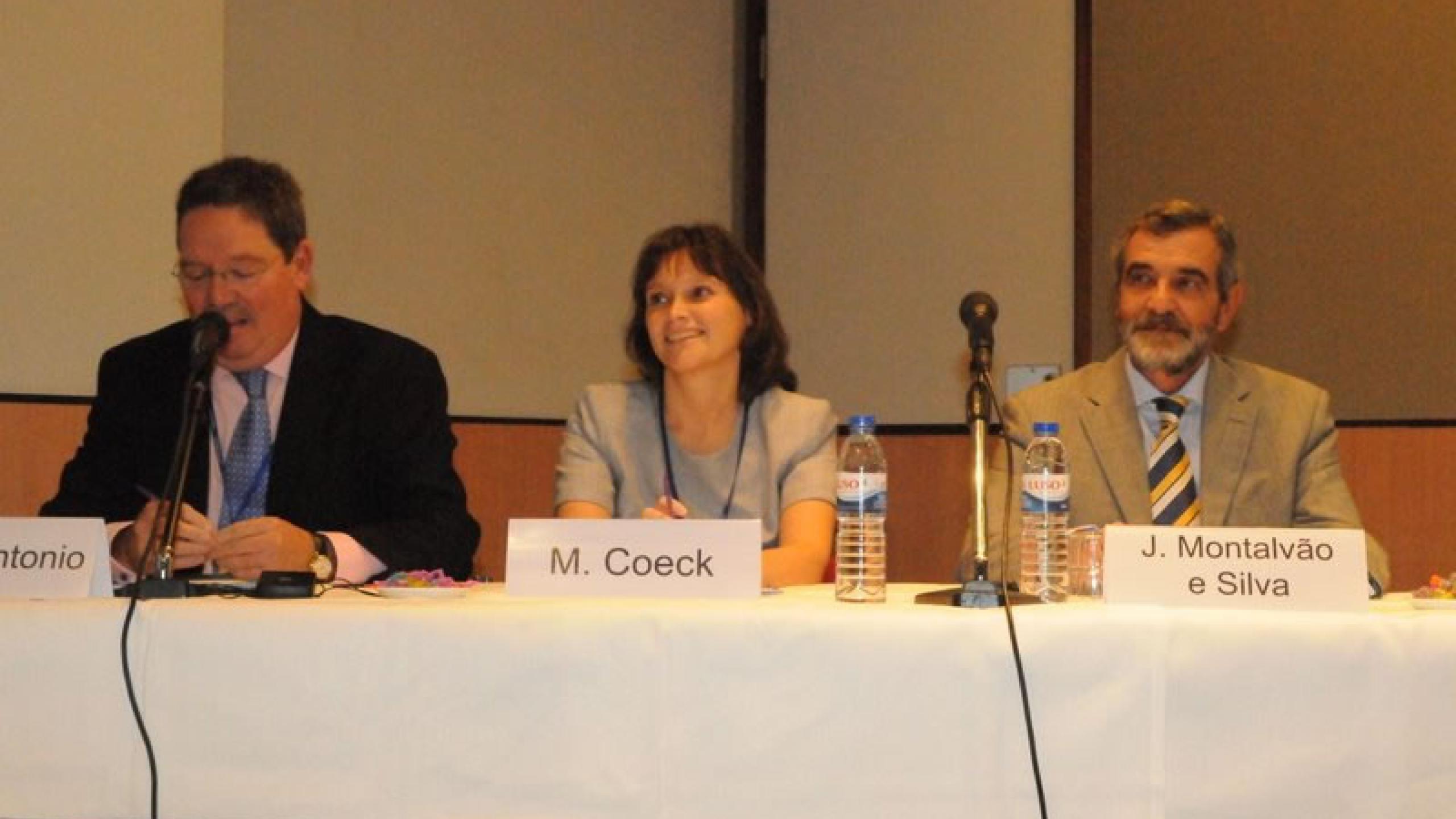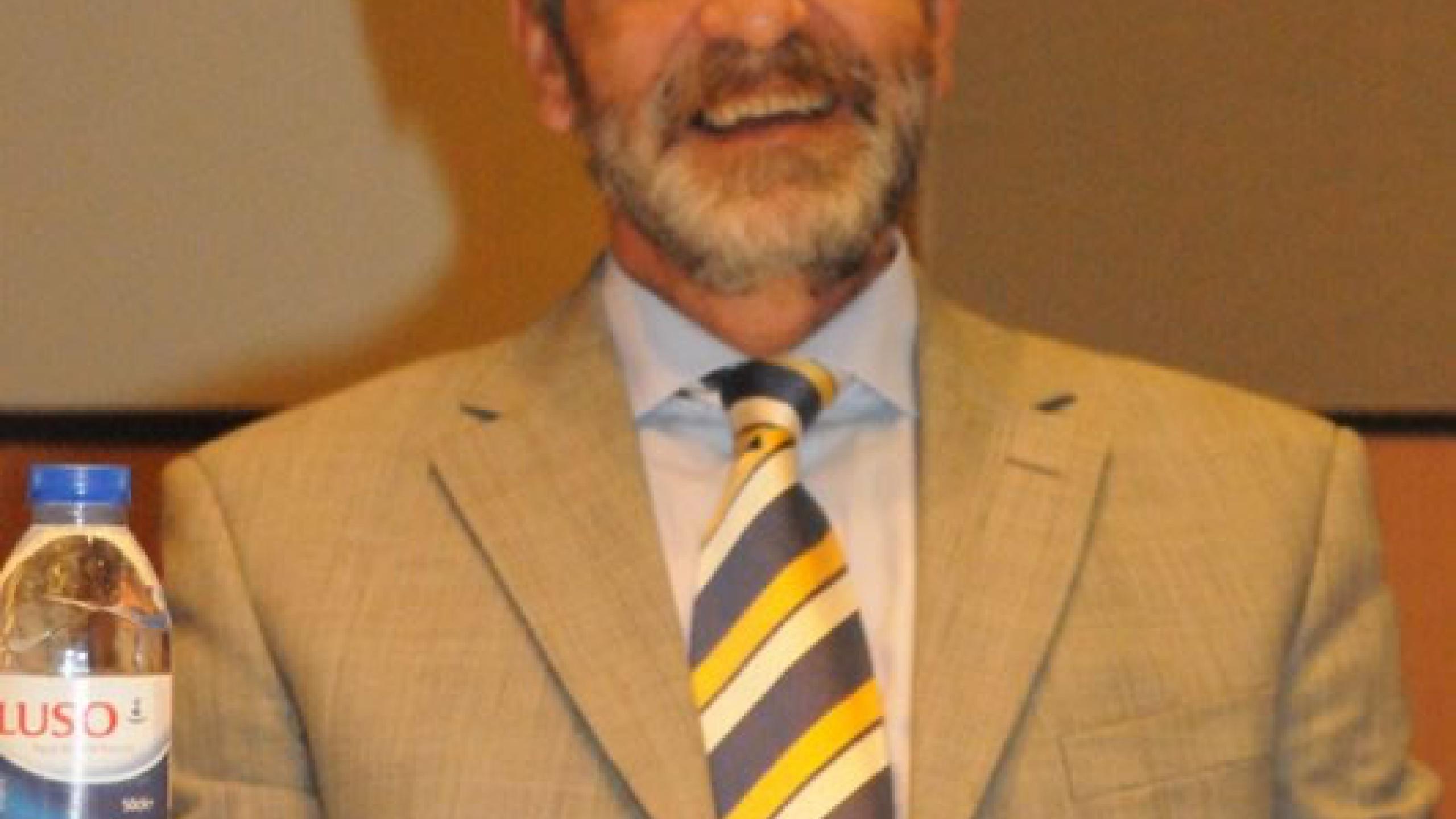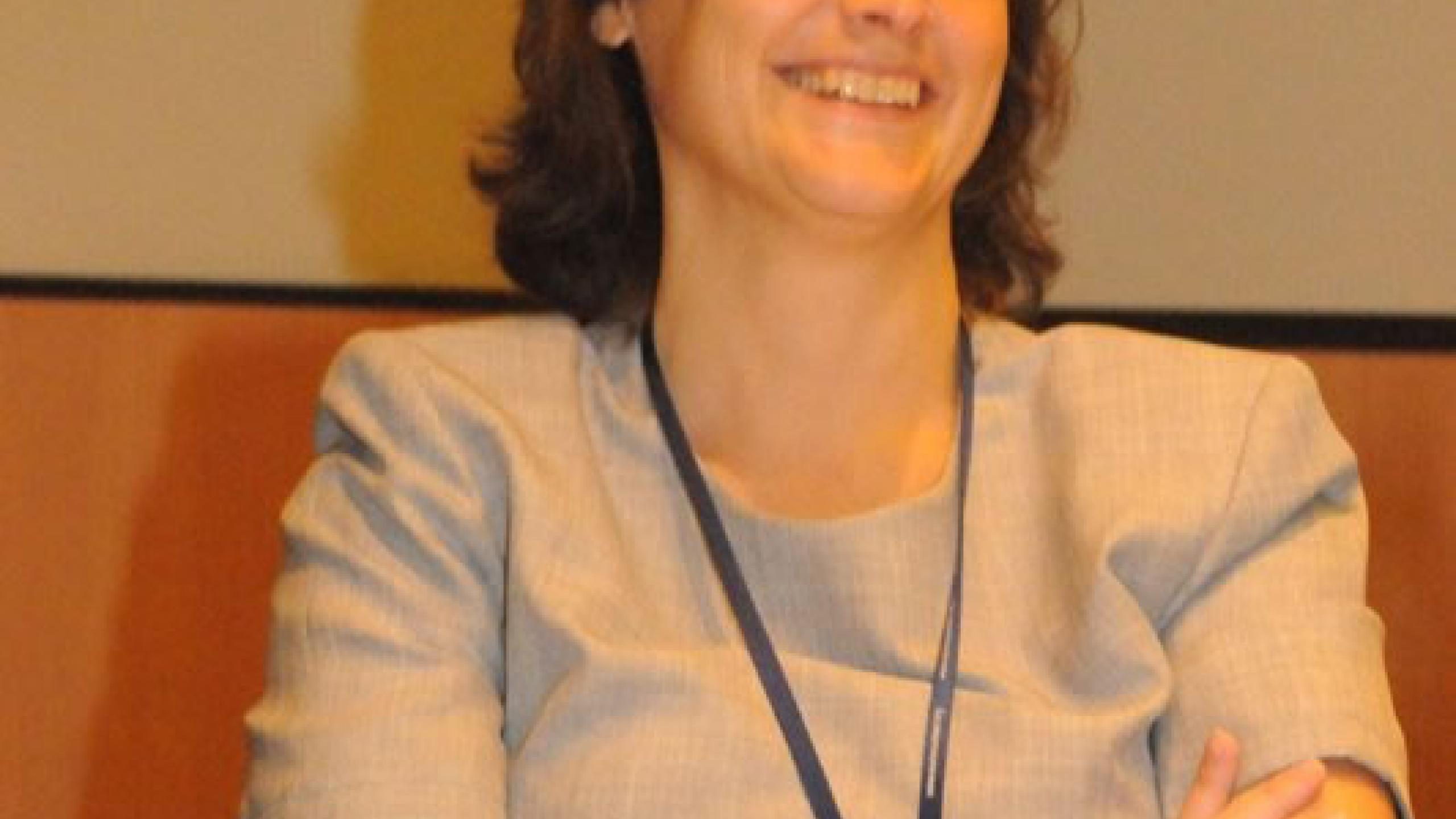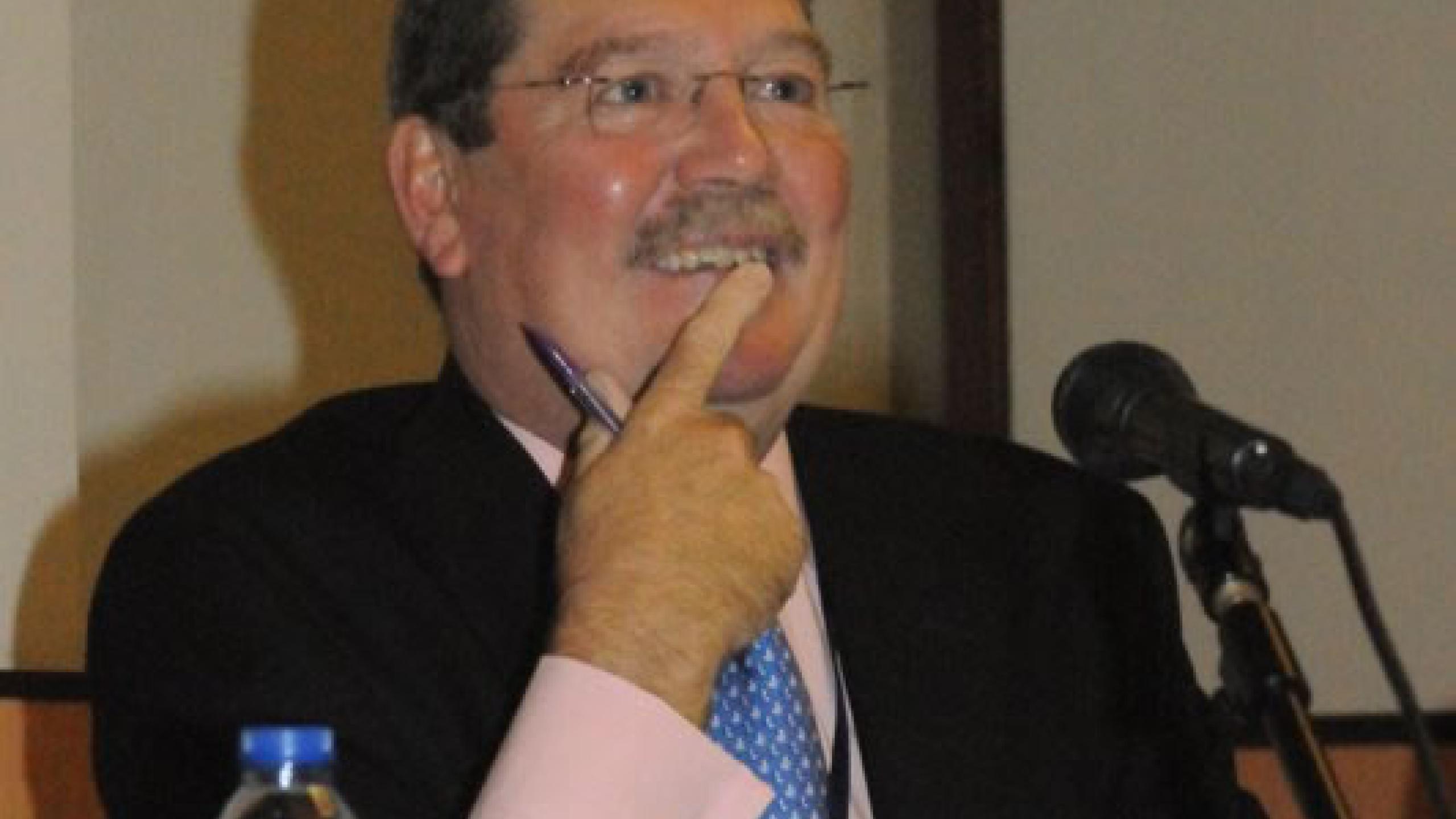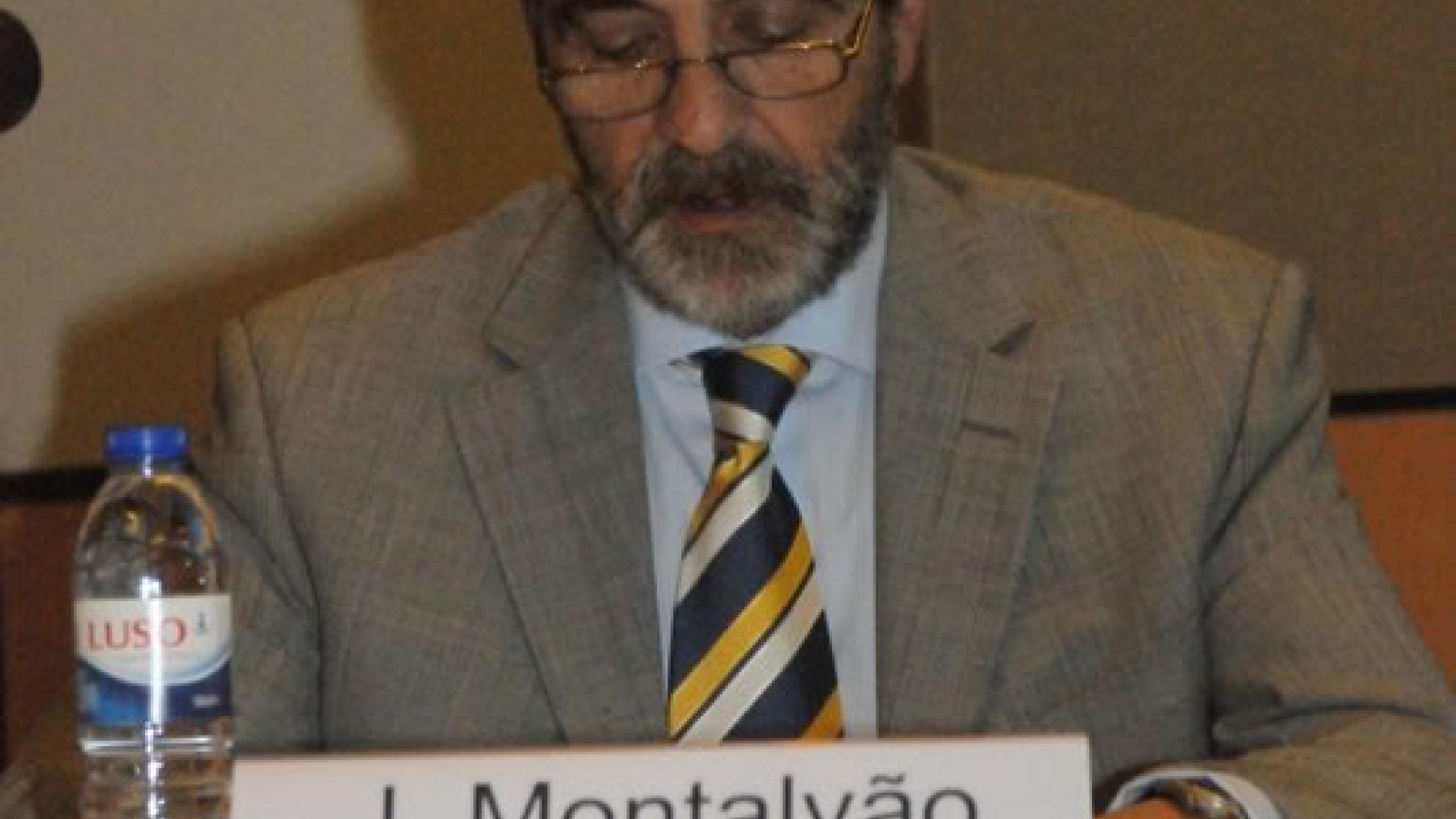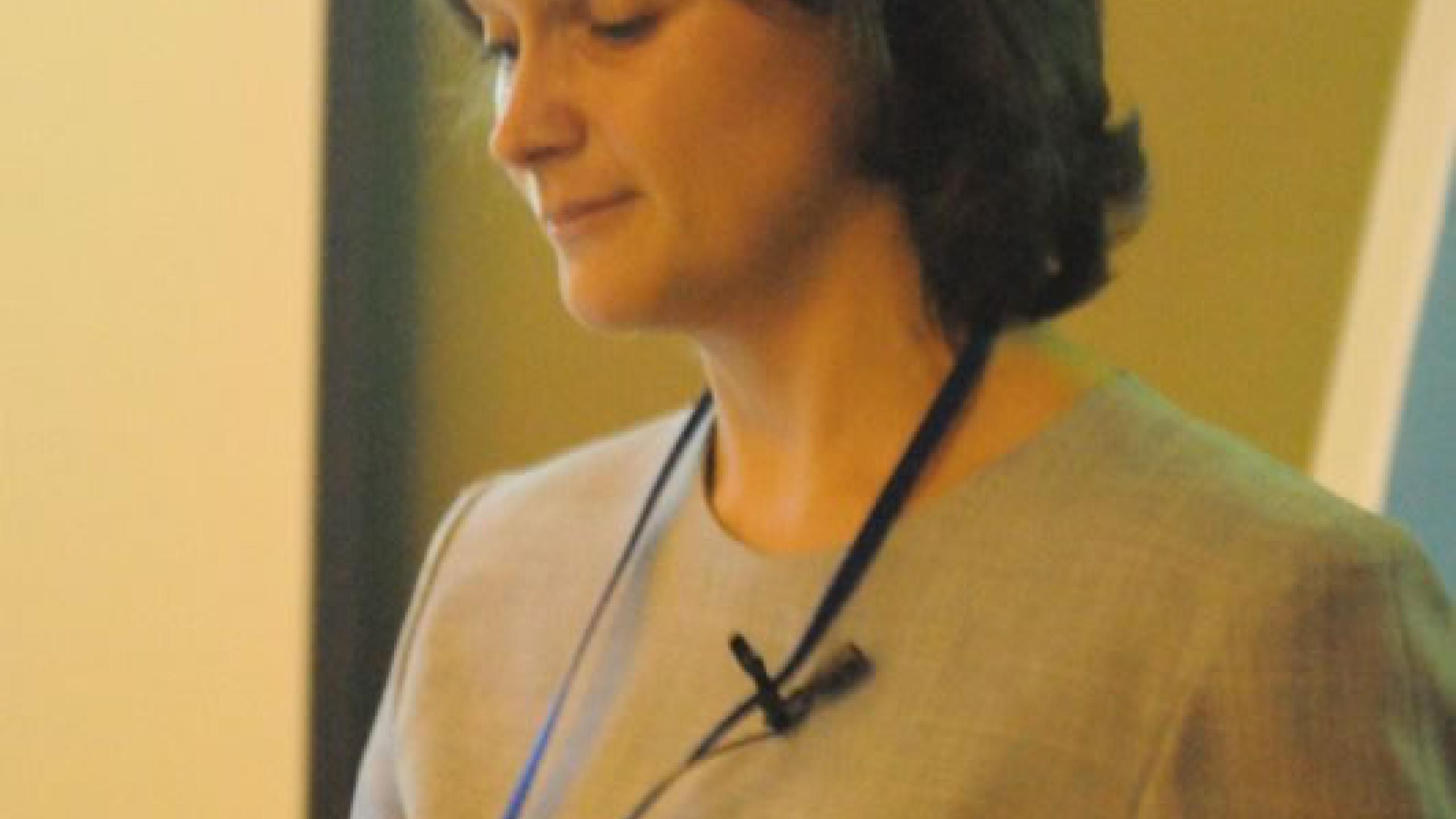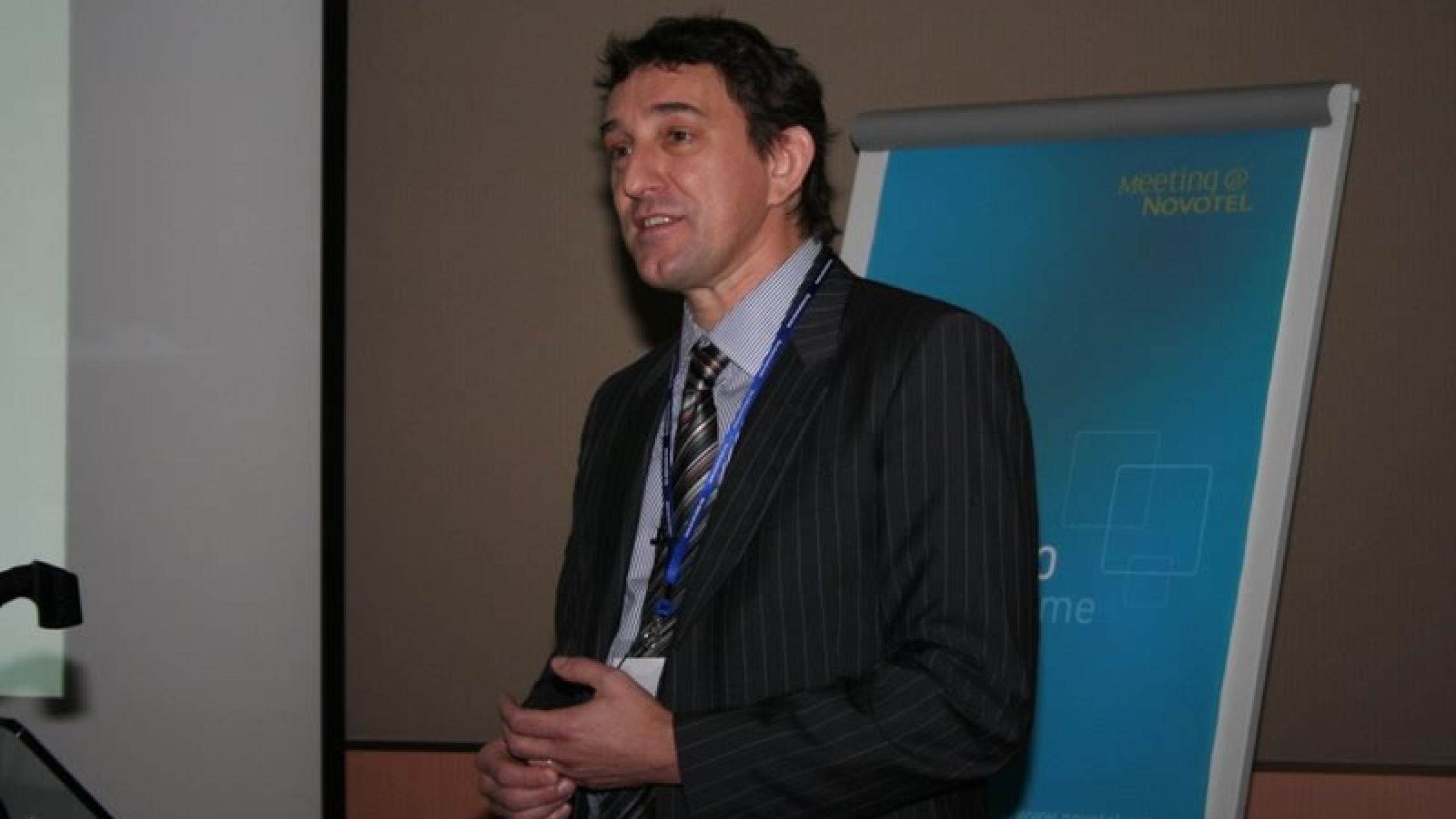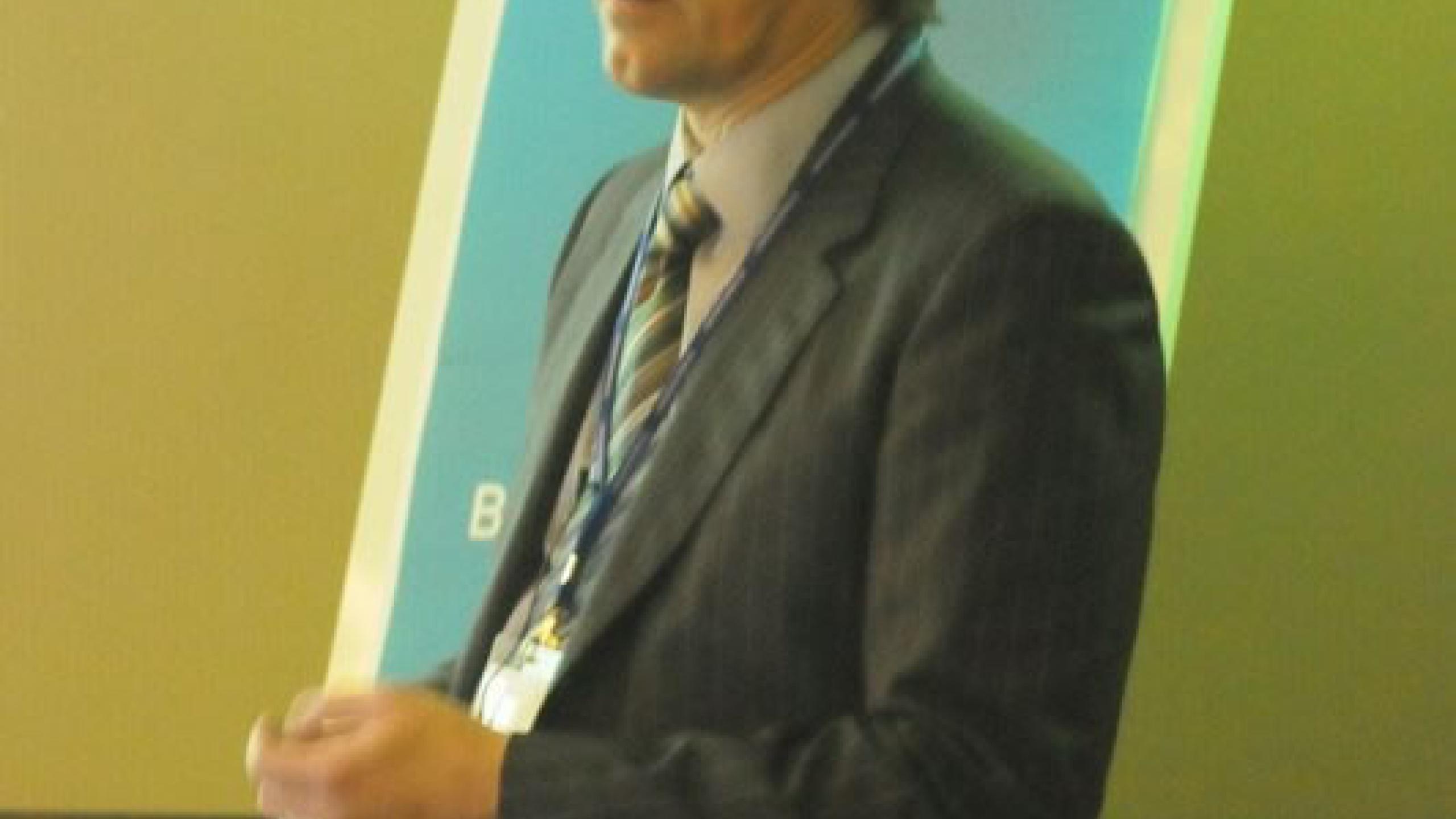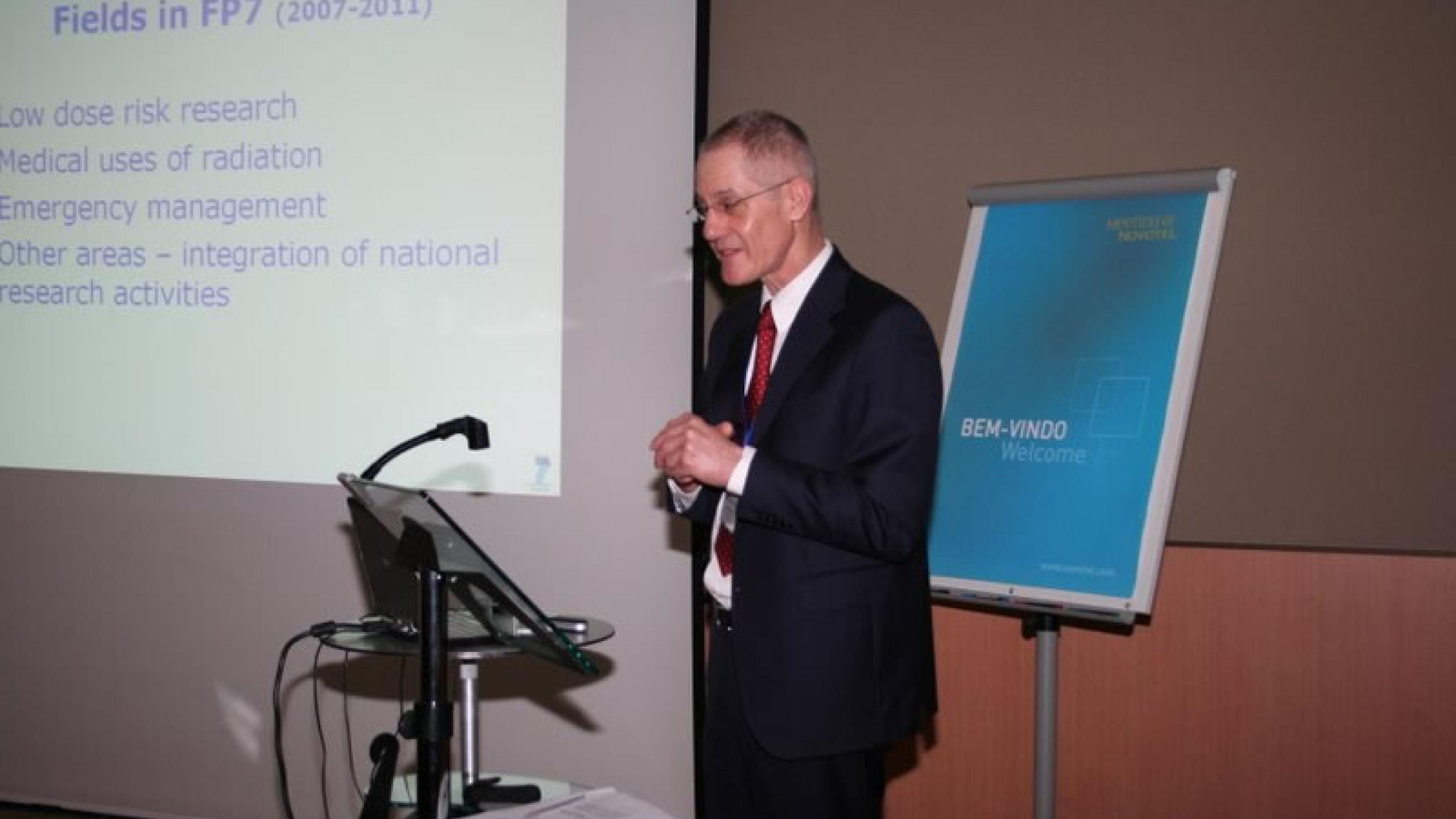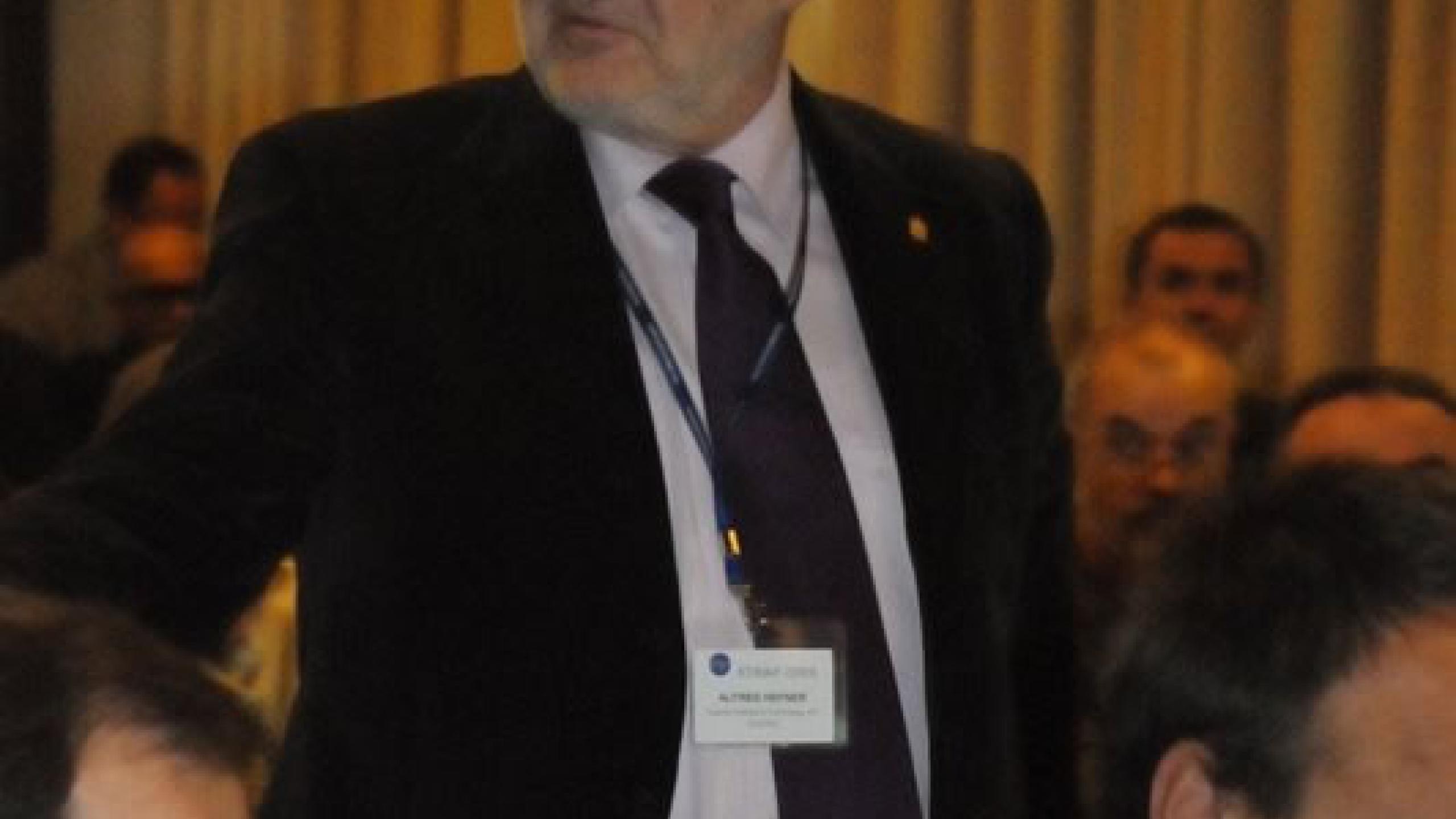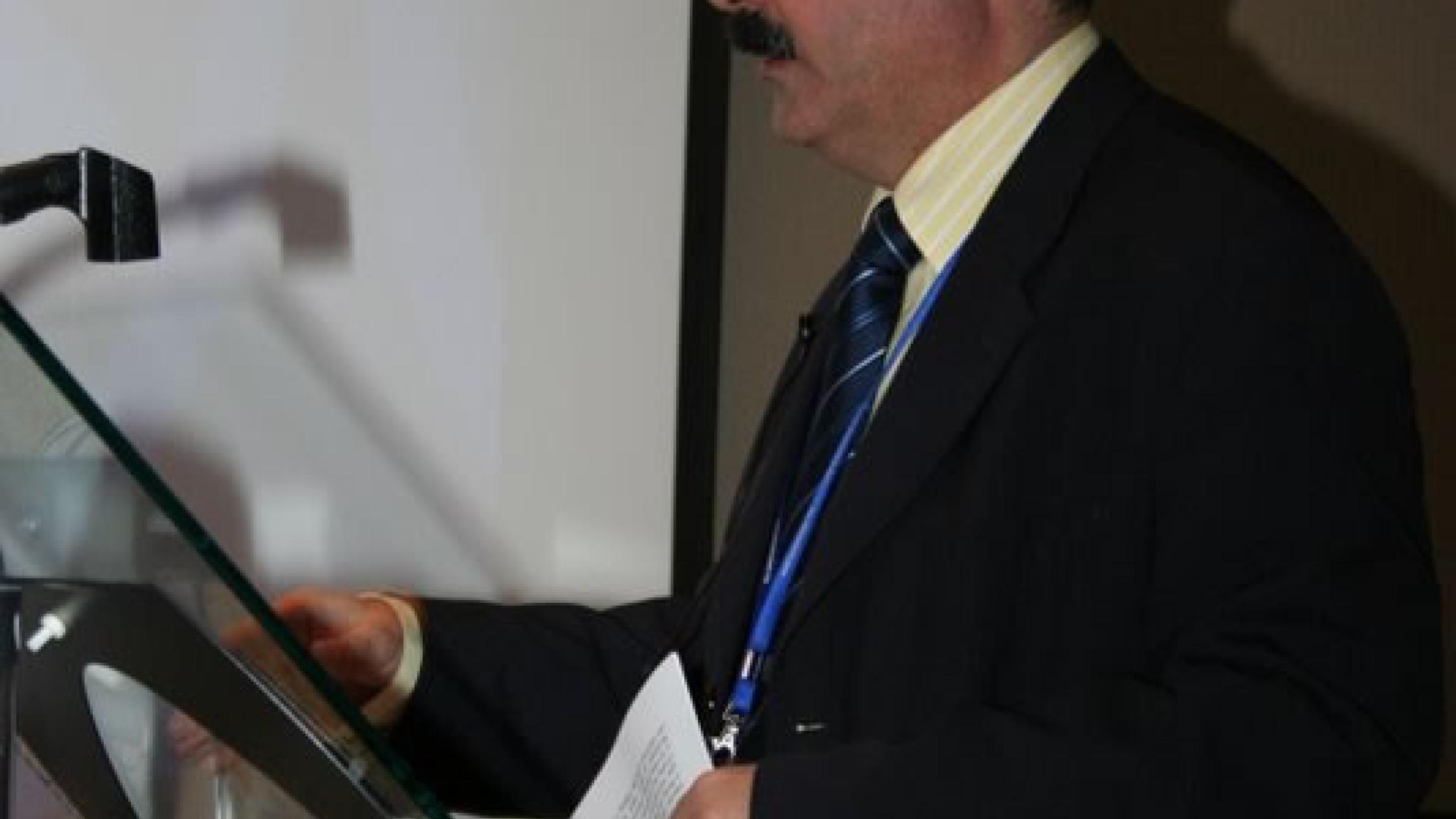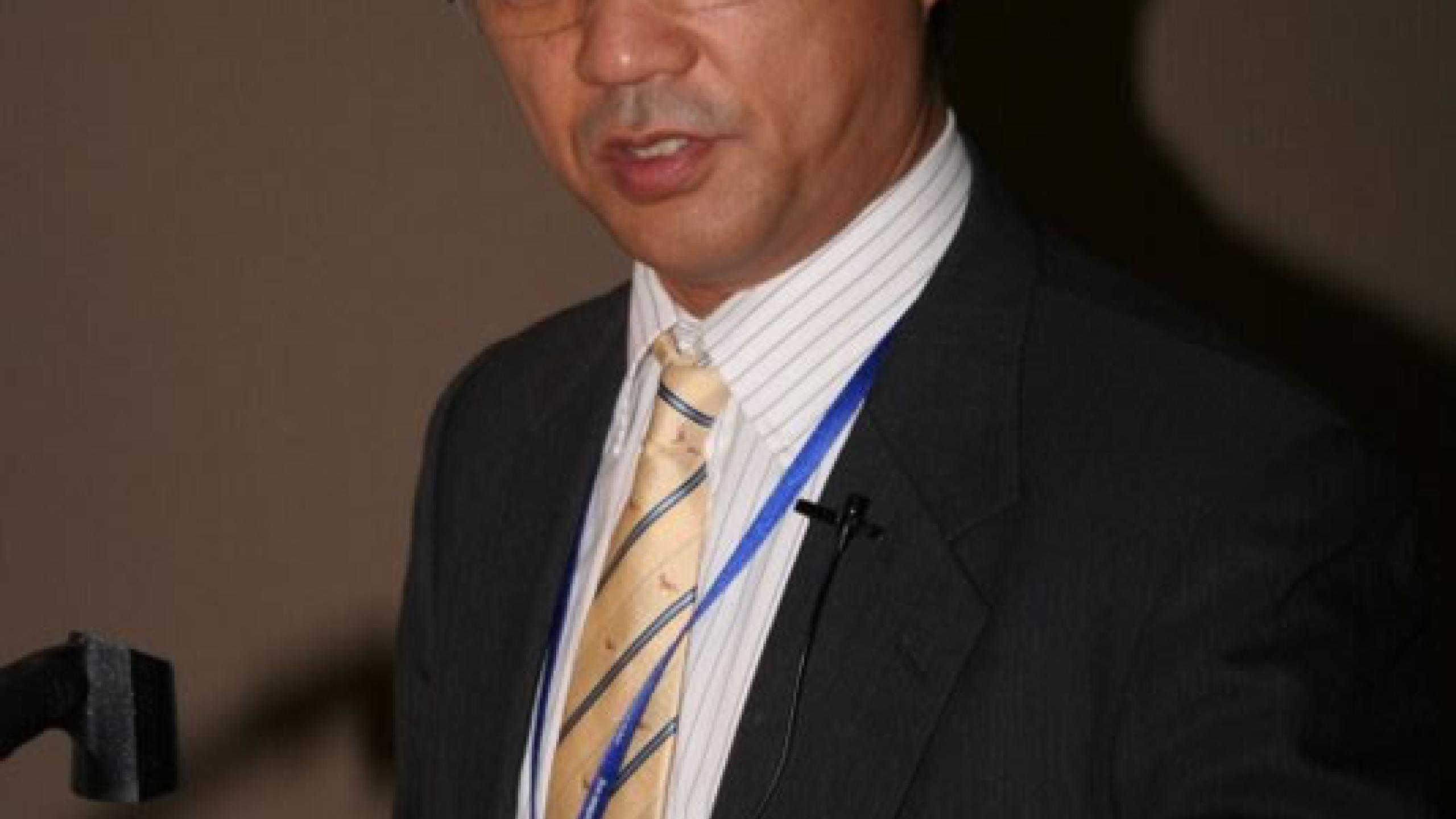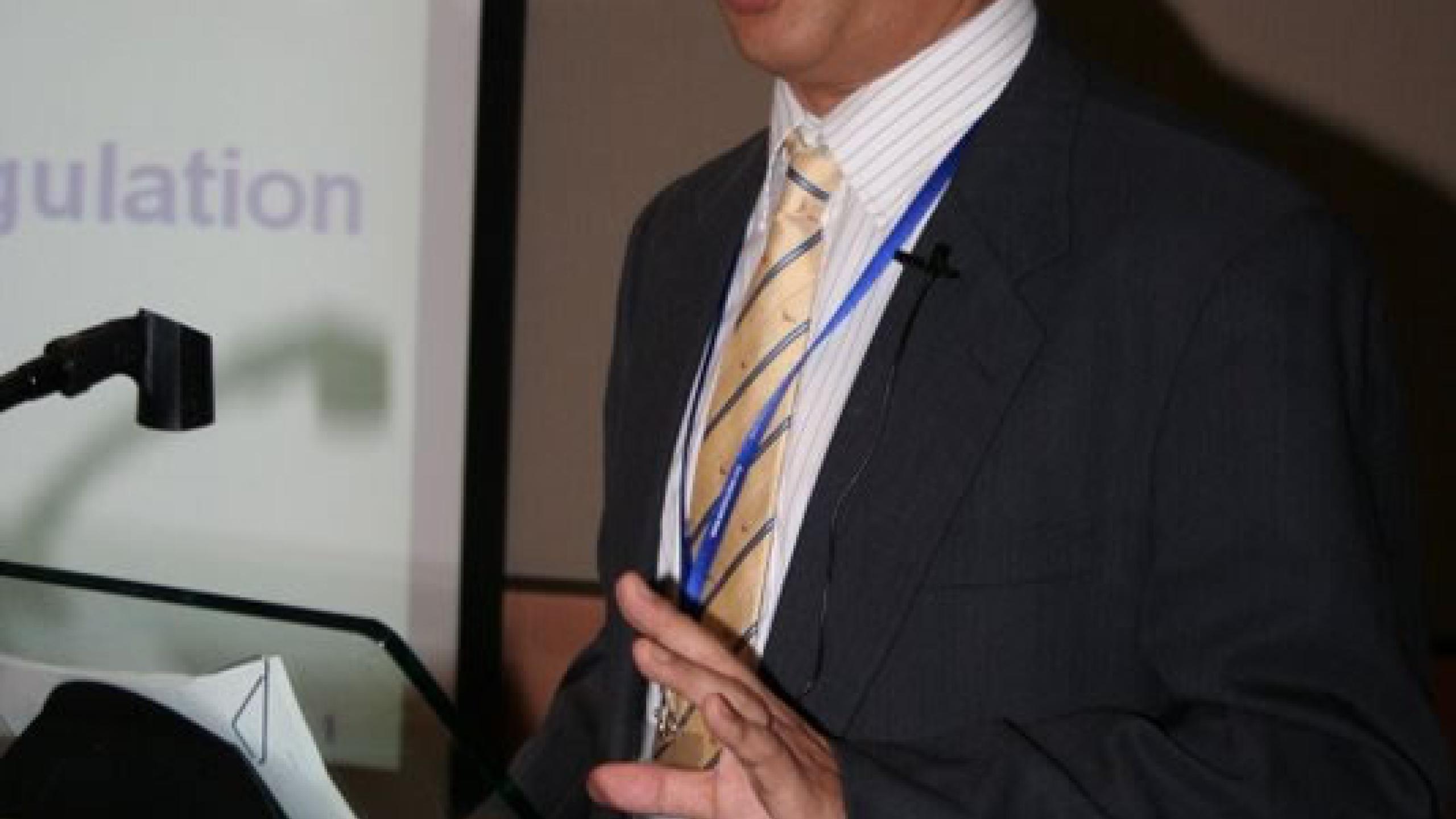ETRAP 2009
8 - 12 November 2009, Lisbon, Portugal
4th International Conference on Education and Training in Radiological Protection
Organised by the Belgian Nuclear Research Centre (SCK•CEN), the European Nuclear Education Network (ENEN) and Instituto Tecnológico e Nuclear (ITN), in cooperation with the Nuclear Energy Agency (NEA), the European Nuclear Society (ENS) and the International Atomic Energy Agency (IAEA).
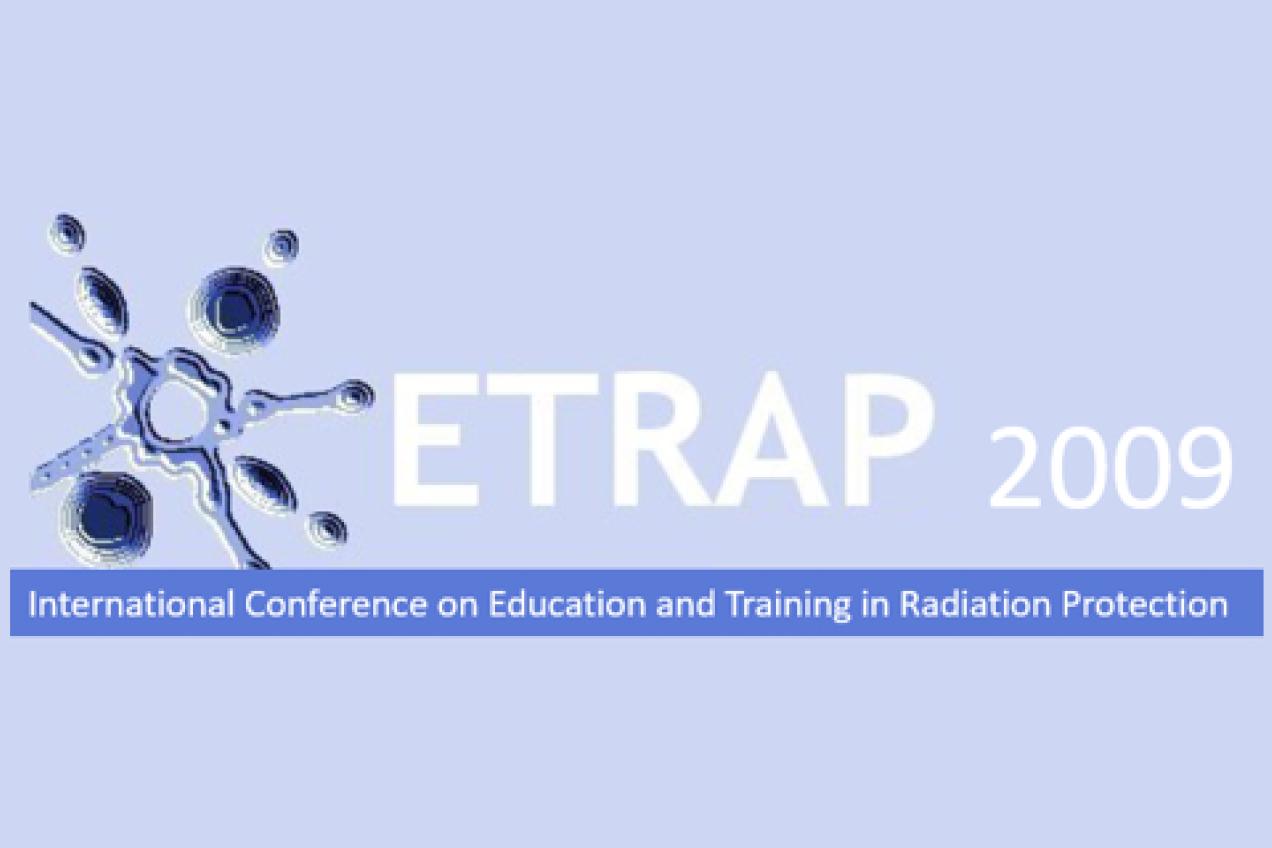
Organisation
-
Ms Coeck, Michèle (chair)
Belgian Nuclear Research Center (SCK•CEN), Belgium
Mr Bazargan-Sabet, Behrooz
Ecoles des Mines de Nancy, FranceMr Draaisma, Folkert
Nuclear Research & consultancy Group (NRG), NetherlandsMr Gonçalves Marques, José Joaquim
Instituto Tecnológico e Nuclear (ITN), PortugalMr Jouve, André
EC DG RTD, BelgiumMr Mundigl, Stefan
EC DG TREN, LuxembourgMr Paynter, Richard
Health Protection Agency (HPA), United KingdomMs Schmitt-Hannig, Annemarie
Bundesamt für Strahlenschutz (BfS), GermanyMr van der Putten, Wil
EFOMP, IrelandMr Vaz, Pedro
Instituto Tecnológico e Nuclear (ITN), PortugalMr Vekic, Branko
Rudjer Boskovic Institute (IRB), CroatiaMr. Wheatley, John
International Atomic Energy Agency (IAEA), AustriaMs Kusumi, Ryoko
ENEN, France -
Júlio Montalvão e Silva (general conference chair)
President of Instituto Tecnológico e Nuclear (ITN)António Nazareth Falcão (local organising committee chair)
Instituto Tecnológico e Nuclear (ITN)
Programme
Download the ETRAP 2009 programme (pdf).
Post Conference Technical Visit of the Technological and Nuclear Institute (ITN)
The Technological and Nuclear Institute (ITN) is a State Laboratory performing and promoting scientific research and technological development, in particular in the field of nuclear sciences and technologies, radiological protection and safety. Its areas of expertise comprise Physics and accelerators, Chemical and radiopharmaceutical sciences, Reactors and nuclear safety and Radiological Protection and safety.
Documents
-
Download the ETRAP 2009 transactions.
Session 1: Setting the Scene
Session 2: Current Status
Session 3: Approaches in sector specific training
Session 4: Developments in training delivery
Session 5: Recent developments in recognition and harmonisation of requirements
Session 6: Education and training networks
Session 7: Building the future - attracting a new generation
Session 8: Broadening the perspective
Poster Session: Poster Session -
Setting the scene
Education and Training requirements in the revised European Basic Safety Standards Directive
Stefan Mundigl (European Commission, DG TREN - H 4 Radiation Protection)Education, Training and the Euratom Framework Programme
G. Van Goethem, A. Jouve (European Commission DG-Research) – BelgiumIRPA’s contribution to E&T activities for radiation protection professionals
E. Gallego (International Radiation Protection Association, IRPA)IAEA Activities in Education and Training in Radiation, Transport and Waste Safety: Current status and future challenges
J. Wheatley (International Atomic Energy Agency)Perspective on future needs for radiation protection competence for nuclear infrastructure
U. Yoshimura (OECD)Current status in E&T in radiological protection
Radiation and Waste Safety Training: Towards Sustainable Training and Self Reliance – A Malaysian Experience
M. L Juri, S. Hassan, D. Mohamad (Malaysian Nuclear Agency) – MalaysiaRadiation Protection Training Program at the EU Joint Research Centre in Ispra, Italy
C. Osimani, D. Giuffrida (Joint Research Centre) - ItalyRadiation Protection Training in Loviisa NPP, Legislative guidance and Development of Training Process - Historical Approach
M. Ritala, M. Koivisto, M. Halin, T. Kontio, M. Virtanen, J. Vanhanen, J. Karhula (Fortum Power and Heat Oy, Loviisa NPP) - FinlandDevelopments in training delivery
Distance teaching - an experience from PETRUS (education in geological disposal of radioactive waste)
B. Bazargan Sabet (Institut National Polytechnique de Lorraine, Ecole des Mines de Nancy) – France; F.J. Elorza Tenreiro (Universidad Politécnica de Madrid, Escuela Técnica Superior de Ingenieros de Minas) – Spain; K-J. Rohlig (Technische Universität Clausthal, Institut für Endlagerforschung) – Germany; R. Vasicek, J. Svoboda (CTU in Prague, Centre of Experimental Geotechnics) – Czech RepublikDevelopment of the γ-ray spectroscopy system using CsI(Tl)-PIN diode detector for educational purposes
Y. Nam, H.S. Kim, J-H. Ha, B-J. Min (Atomic Energy Research Institute) – Republic of KoreaFifty-year Experience of Nuclear&Radiation Education at NuTEC/JAEA -Mainly on Radiation Basic Course and New Distance Learning System-
K. Kushita, H. Kato, H. Murakami, J. Sugimoto (Nuclear Technology and Education Center, Japan Atomic Energy Agency ) - Japan -
Education and training networks
ENETRAP II 7FP: development of E&T schemes for radiation protection experts and officers
M. Coeck (SCK•CEN) - BelgiumThe EUTERP Platform: Results of the 3rd Workshop
F. Draaisma (Nuclear Research and Consultancy Group NRG) – the NetherlandsThe Role of EFOMP in the Integration of Radiation Protection into the General Health and Safety Education and Training of Health Professionals Through National and International Networks
W. van der Putten, S. Christofides, M. Wasilewska-Radwanska (European Federation of Organisations for Medical Physics) – United KingdomENEN’s Challenges in Response to the Industry and Regulatory Needs
P. De Regge, R. Kusumi (European Nuclear Education Network Association), J. Safieh (CEA/INSTN) - FranceRole of Small Research Reactors in Education and Training in Radiological Protection
H. Böck (Atominstitut) – Austria; J. Marques (Instituto Tecnológico e Nuclear) – Portugal, A. Aszódi (Institute of Nuclear Techniques, Budapest) – Hungary; L. Sklenka (Department of Nuclear Reactors, Czech Technical University) – Czech RepublicA Network to enhance Cooperation for Higher Education on Radiological Protection
J. Rodenas (Universidad Politénica de Valencia) - SpainApproaches in sector specific training
Sector-specific in-house Education and Training at Siemens
K-M. Schlicke (Siemens AG) – GermanyEducation and Training of Radiation Protection Officers in Sweden
V. Nilsson (Forsmarks Kraftgrupp AB (NPP)) - SwedenNot able to distinguish between X-ray tube and image intensifier: fact or fiction? Skills in radiation protection with focus outside radiological departments
E.G. Friberg, A. Widmark, M. Solberg, T. Wøhni, G. Saxebøl (Norwegian Radiation Protection Authority, Section for Dosimetry and Medical Applications) – NorwayOptimizing Radiation Protection in Medical Practice
X. Ortega, M. Ginjaume, (Institute of Energy Technology, Universitat Politècnica de Catalunya (UPC)) – Spain; E. Carinou (Greek Atomic Energy Commission (GAEC)) – Greece; F. Vanhavere (Belgian Nuclear Research Centre (SCK•CEN)) – Belgium; I. Clairand (Institut de Radioprotection et de Sûreté Nucléaire (IRSN)) – France; G. Gualdrini (Radiation Protection Unit ENEA) – Italy; M. Sans-Merce (University Hospital Center Vaudois (CHUV)) – SwitzerlandEducation of Health Physicists and Health Physics Technicians at Danish Decommissioning
J. Silva, B. Lauridsen (Dansk Dekommissionering) - DenmarkRadiation Protection Education for Physicians in training. Three years experience.
P.Garcia Castañon; M.L. España Lopez; V. Fernandez Bedoya; R. Bermudez Luna (Radiation Protection Department, Hospital Universitario La Princesa) – SpainEnhancing Bruce Power’s Management Model - Laying a Foundation for RP Excellence
M. McQueen, S. Brisette (Bruce Power) - CanadaBroadening the perspective
Idaho State University Radiological Protection Education and Training for the Nuclear Renaissance
J. Harris (Idaho State University) – United StatesEducational Programme in Nuclear Security
M. Gregoric, A. Braunegger-Guelich, P. Colgan, V. Rukhlo (IAEA)Lecturing Ethics in Cources on Radiological Protection and Nuclear Technology Assessment: Feedback on 5Y of Academic Experience
G. Meskens (SCK•CEN - PISA (Programme of Integration of Social Aspects into Nuclear Research)), M. Coeck (SCK•CEN - isRP (international school for Radiological Protection)) - BelgiumIntegration of Radiation Protection into a general health and safety training?
S.Severitt (B.A.D GmbH, Abteilung Fraunhofer) - Germany -
Recent developments in recognition and harmonisation of requirements
United States Nuclear Regulatory Commission Training Program
J. Ricci (United States Nuclear Regulatory Commission) - United StatesENETRAP II: WP2 - Requirements for the Recognition of Radiation Protection Expers (RPE)
J. Stewart (Radiation Protection Division, Health Protection Agency (HPA)) – United Kingdom; F. Draaisma (NRG) – The Netherlands; P. Livolsi (National Institute for Nuclear Science and Technology (CEA-INSTN)) – France; A. Luciani (ENEA Radiation Protection Institute) – Italy; A. Schmitt-Hannig (Bundesamt für Strahlenschutz (BfS)) - GermanyENETRAP II: WP3 Requirements for RPO Competencies and Establishment of European Guidance for RPO Training
A. Schmitt – Hanning (Bundesamt für Strahlenschutz (BfS)) – Germany; M. Coeck (SCK•CEN - Belgian Nuclear Research Centre) – Belgium; F. Draaisma (NRG) – The Netherlands; A. Luciani (ENEA) – Italy; M. Marco (Virtual Centre For Distance Learning And Transfer Knowledge, CIEMAT) – Spain; S. Möbius (International Training – FTU, Forschungszentrum Karlsruhe) – Germany; J. Stewart (Health Protection Agency) – United Kingdom; P. Vaz (Instituto Tecnológico e Nuclear (ITN)) - PortugalENETRAP II: WP5 - Develop and Apply Mechanisms for the Evaluation of Training Material, Events and Providers
F. Draaisma (NRG) – The Netherlands; J. Stewart (Health Protection Agency HPA) – United Kingdom; P. Livolsi (CEA-INSTN) – France; A. Luciani (ENEA) – Italy; S. Möbius (Forschungszentrum Karlsruhe FZK) – Germany; P. Vaz (ITN) – Portugal; M. Ceclan (Polytechnical University Bucharest PUB) – Romania; P. de Regge (ENEN) - FranceHarmonization of national and regional education and training in radiation protection in case of Belarus
A. Timoshchenko (International Sakharov Environmental University) - BelarusTraining of RPOs in Slovenia: Lessons Learned and Suggestions for Improvenment
M. Koželj I. Jenčič (Jožef Stefan Institute) - SloveniaProfessional Qualification in Radiological Protection: Update on the Portuguese Needs
A. Falcao, C. Oliveira (ITN, Nuclear and Technological Institute), P. Rosário (DGS - Directorate-General of Health) - PortugalBuilding the future - attracting a new generation
Maintaining Competence in Radiation Protection in Germany
A.Böttger, R. Raguse (Division RS II 2 – General and Fundamental Aspects of Radiological Protection, Federal Ministry for Environment, Nature) - GermanyEuropean Master programmes in Radioecology, Radiation Protection and Advanced Radiochemistry to meet the stakeholders needs for recruitment
L. Skipperud, B. Salbu (Norwegian University of Life Sciences) – Norway; H. Garelick, H. Jones (Middlesex University) – United Kingdom; Ch. Tamponnet (IRSN) - FranceENETRAP II: Enthusing and Attracting Young Generation with Radiation Protection
M. Ceclan, R. E. Ceclan (University Politehnica of Bucharest) – Romania; M. Coeck (SCK-CEN) – Belgium; A. Schmidt-Hannig (BfS) – Germany; P. Livolsi (CEA – INSTN) - FranceThe European Master’s Degree in Radiation Protection "EMRP": an ENETRAP result
P. Livolsi (Institut National des Sciences et Techniques Nucléaires, CEA/INSTN); J. Balosso, H. Mazouzi (Joseph Fourier University, CHU Grenoble) – France; L. Musilek Czech Technical University in Prague, Faculty of Nuclear Sciences and Physical Engineering) - Czech Republic; A. Chard (North Highland College UHI)- United Kingdom -
Current status
Twenty years of radiological protection training at Dublin University
E. Finch, E. Doorly (School of Physics, University of Dublin,Trinity College) - IrelandApproaches in sector specific training
A Toolkit for Radiation Dose Assessments
D. Hulhoven, S. Vanderperre, T. Soetens (Tractebel Engineering) – BelgiumRadiation protection courses for technical applications in Germany - an overview
J-W. Vahlbruch (Leibniz Universität Hannover) – GermanyHow “Do’s” and “Don’ts” can be of significant importance in radiation protection
A. Widmark, E.G. Friberg (Norwegian Radiation Protection Authority, Section for Dosimetry and Medical Applications) - NorwayDevelopments in training delivery
Dual Education for a Career as Radiation Protection Engineer – The Karlsruhe Model of Cooperative Education in Radiation Protection with both, Integrated Academic Sudie and Work Experience
W. Kraut (Baden-Wuerttemberg Cooperative State University Karlsruhe), A. Zieger (Forschungszentrum Karlsruhe), M. Urban, A. Bickel (Wiederaufarbeitungsanlage Karlsruhe, Rueckbau-und Entsorgungs-GmbH) - GermanyRecent developments in recognition and harmonisation of requirements
Training for Regulation or Regulation for Training?
M.M. Meruje, M. Gieb, S. Dias, J. Sampaio, M. Ferro (CIPRSN Independent Commission for Radiological Protection and Nuclear Safety) – PortugalBroadening the perspective
The Actual State of Physics Teachers' Cognition on the Concept of Radiation in Korea
S-T. Sang-Tae (Kongju National University) – Republic of Korea
ETRAP 2009 photo gallery

